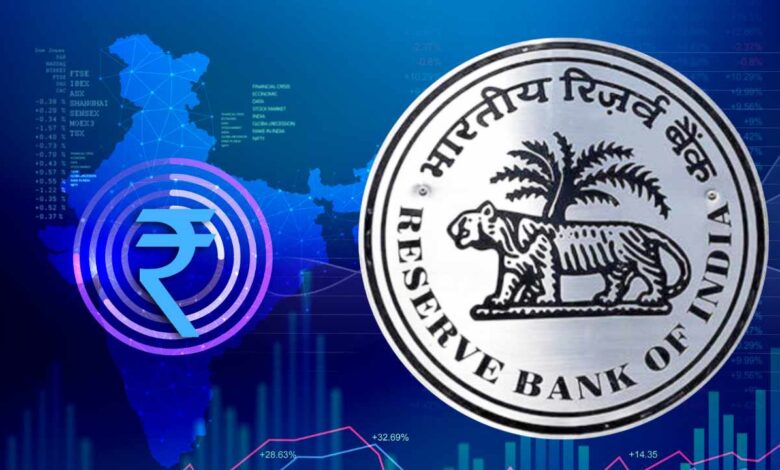
India is considering a comprehensive ban on private cryptocurrencies such as Bitcoin and Ethereum as part of its strategy to mitigate risks in the volatile cryptocurrency market. The Indian government has expressed a preference for Central Bank Digital Currencies (CBDCs) over private cryptocurrencies. This move is seen as a way to harness the benefits of digital currencies while avoiding the instability and misuse associated with private alternatives.
The Reserve Bank of India (RBI) has been a vocal supporter of CBDCs, emphasizing their potential to offer a secure and stable financial solution. According to regulators, CBDCs do not need to align with the financial inclusion goals often linked to cryptocurrencies, yet they still provide a safer alternative that can meet these objectives.
The Growing Adoption of CBDC in India
In 2022, India launched its digital currency, the digital rupee, known as e₹. With over 5 million users and participation from 16 banks, the digital rupee initiative has gained significant momentum. This initiative holds the potential to redefine the future of digital finance in India, with the digital rupee currently being utilized in targeted programs.
RBI Governor Shaktikanta Das has highlighted the efficiency and security that CBDCs could bring to financial services, particularly for underprivileged and vulnerable segments of society. As pilot projects continue to gain traction and achieve success, the Indian government is poised to expand the scope of CBDCs. This expansion will not only serve domestic purposes but also enhance cross-border transactions, potentially revolutionizing international trade and remittances.
Such developments are likely to strengthen India’s position in the global financial arena. The improvements driven by CBDC adoption are expected to foster greater economic inclusion and digital financial transformation across various sectors.
Crypto: Regulatory Shifts and Taxation
The regulatory landscape for cryptocurrencies in India has been dynamic. After the Supreme Court lifted the ban on cryptocurrency transactions in 2020, the industry saw a resurgence. However, the Indian government has since implemented stringent tax policies. Cryptocurrencies are classified as Virtual Digital Assets (VDAs), with income taxed at 30% and transactions over INR 10,000 subject to a 1% TDS.
While the government acknowledges the potential of blockchain and crypto technology for applications like tokenizing government securities, it remains cautious about private currencies. The possibility of a complete ban on private cryptocurrencies persists, especially following the synthesis paper backed by the Financial Stability Board and International Monetary Fund in 2023.
In contrast, CBDCs continue to be favored by regulators. The future regulatory framework will likely be shaped by careful consultations, ensuring that CBDCs serve as a model for digital currency regulation.







